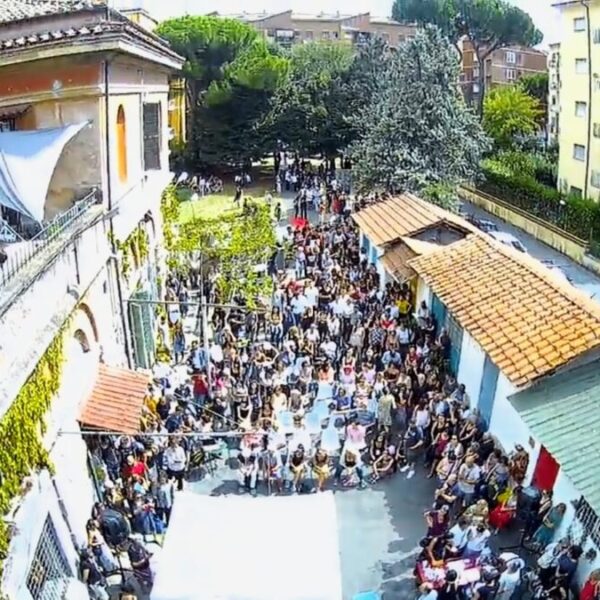In the southeast district of Rome, since 2008, there is Lucha Y Siesta, a group of feminists and human rights activists for women who assist individuals who have survived male and gender-based violence. The group’s name partly comes from the address (via Lucio Sestio) and partly from the Spanish meaning of Siesta (rest, in reference to the safe places offered to women in need) and Lucha, which means "struggle".
In about fifteen years of activity, the group has significantly expanded and developed. Starting from the occupation in 2008 of an abandoned building owned by Rome’s public transport company, initiatives were born that expanded the Lucha Y Siesta community. Today, some of the activists have established an association where they work voluntarily and free of charge. The association manages anti-violence centers and shelters on behalf of the city of Rome and participates in numerous projects against gender-based violence. All thanks to a group of professional activists with diverse skills who voluntarily help those seeking to escape from a violent situation, sometimes even with underage children.
This is a very important activity in a territory that is complicated for the female population. According to the data from the Italian government, in 2023 in Italy.
120 women have been killed, of whom 75% were killed by their partner or in a family or emotional context. The centers fighting against violence and shelters are approximately 60% less than what is required by the guidelines of the Istanbul Convention. The Italian data also indicate about 12,500 cases of harassment and an increase in revenge porn, which is the non-consensual dissemination of intimate images, of which women are victims in over 90% of cases.
Even in the city of Rome, the problem is pronounced. According to the prosecutor of Rome Francesco Lo Voi, in 2023, there were about 10 reports of gender-based violence per day. In September 2023, the Council of Europe described the Italian situation as "worrying", especially in light of the fact that the European Court of Human Rights has repeatedly condemned Italy for its "ineffective response" to women’s complaints.
Since its creation until today, Lucha Y Siesta has sought to address this problem. Simona Ammerata, co-founder, social worker, and activist at the center, explained that the impact of their voluntary work on the community is very significant. In addition to managing the occupied building on Lucio Sestio street, Lucha Y Siesta has launched other projects over time and also manages safe houses in secret and secure locations, where women coming out of violent situations can rebuild a new life safely away from violent partners or ex-partners.
"Dealing with gender-based violence is costly," explained Ammerata. "For example, the annual call for a shelter costs around 200,000 euros per year and usually accommodates 5 or 6 women. Instead, we accommodate 12 per year. The call center is also important: normally, it would cost around 80,000 euros per year, money that we save for the municipal coffers." In addition, there is the cultural impact achieved through events such as film screenings, book presentations, and the organization of events and festivals open to the neighborhood.
Despite this, Lucha Y Siesta has been struggling for years. It all started with the illegal occupation of its headquarters. Although many authorities and institutions have recognized the public value of the activists’ work over time, in 2019, the building was put up for auction to balance the accounts of Rome’s public transport company, and was bought by the Lazio region with the intention of transferring it to Lucha Y Siesta. However, this agreement has since been broken, and the region is trying to evict the women and auction off the management of the building. In the meantime, in early 2024, Lucha y Siesta was acquitted of the charge of illegal occupation of the building.
For this reason, Ammerata says that volunteers are confident that in other places, Italian institutions will recognize the work done against gender-based violence by the association over the years. "However, Ammerata concludes by saying that it is also necessary to fight violence at its source, not downstream. This means that cultural interventions are needed to educate younger generations on sexual and emotional education, and to eliminate systemic inequalities between men and women." In particular, Ammerata says that it is important to help women become independent from a professional and economic point of view, and therefore less exposed to various forms of violence, including physical violence.
